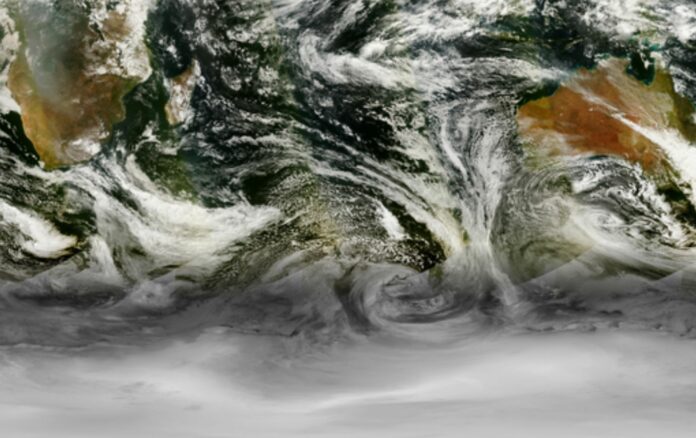The planet’s surface can be cooled or warmed by clouds, a radiative effect that makes a large contribution to the global energy budget and can be changed by pollution brought on by humans.
The Southern Ocean, the world’s southernmost ocean, is around 80% covered in clouds. It is free of human pollution but is vulnerable to a lot of marine gases and aerosols.
What role does this body of water’s interaction with the clouds have in the global climate change?
It’s still being investigated, but owing to an international cooperation that discovered compensation errors in CMIP6, a set of widely used climate model protocols, researchers are now one step closer to solving the mystery.
They presented their findings in an article that was published today in the journal Advances in Atmospheric Sciences.
According to corresponding author Yuan Wang, who is currently an associate professor in the Department of Earth, Atmospheric, and Planetary Sciences at Purdue University, “cloud and radiation biases over the Southern Ocean have been a long-lasting problem in the past generations of global climate models.
“After the latest CMIP6 models were released,” adds the author, they “were anxious to see how they performed and whether the old problems were still there.”
The World Climate Research Programme’s CMIP6 project enables systematic evaluation of climate models to show how they differ from one another and actual data. Five of the CMIP6 models that are intended to serve as standard references were examined by Wang and the researchers for this study.
According to Wang, the team was also inspired by other studies in the field that point to the Southern Ocean’s cloud cover as a factor in some CMIP6 models’ high sensitivity. This is because the simulations predict that the surface temperature will rise too quickly for the rate of increased radiation.
In other words, if the Southern Ocean clouds are inaccurately simulated, the prediction of future climate change could be called into question.
“This paper emphasizes compensating errors in the cloud physical properties in spite of overall improvement of radiation simulation over the Southern Ocean,” Wang adds. “With space satellite observations, we are able to quantify those errors in the simulated cloud microphysical properties, including cloud fraction, cloud water content, cloud droplet size and more, and further reveal how each contributes to the total bias in the cloud radiative effect.”
The physical characteristics of the cloud play a big role in the cloud radiative effect, which describes how clouds interact with radiation to warm or cool the surface. Although the cloud radiative effects in CMIP6 are comparable to satellite data, Wang discovered that there are significant offsetting biases in the cloud proportion liquid water path and droplet effective radius.
Although the cloud radiative effects in CMIP6 are comparable to satellite data, Wang discovered that there are significant offsetting biases in the cloud proportion liquid water path and droplet effective radius.
Since model climate sensitivity evaluations rely on model detailed physics — as opposed to the mean state performance — to gauge the overall impact on the climate, according to Wang, this disparity also largely explains why those assessments don’t perform as well.
The goal of Wang’s upcoming research is to identify and isolate the specific parameterizations that cause these biases.
“Hopefully, we can work closely with model developers to get them solved. After all, the ultimate goal of any model evaluation study is to help improve those models.”
Source: 10.1007/s00376-022-2036-z
Image Credit: Getty
You were reading: New Climate Models Are Clouded By Scientific Biases – Say Researchers
